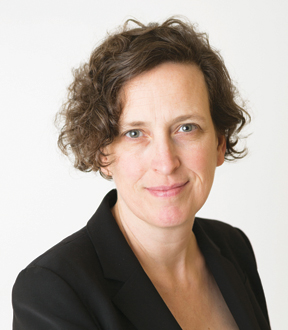The Influencers | Editorial
Last month, I had the pleasure of digging into just how they are also key engines of a book-rich society and, as such, a critical part of the book market—active, engaged builders of excitement about connecting the information, ideas, or perspectives readers need to thrive.
Libraries are engineers of a book-rich society
 Most people think of libraries and books in a single breath. That remains true even as libraries evolve and embrace new formats and strategies to help their communities find what they need. Last month, I had the pleasure of digging into just how they are also key engines of a book-rich society and, as such, a critical part of the book market—active, engaged builders of excitement about connecting the information, ideas, or perspectives readers need to thrive.
Most people think of libraries and books in a single breath. That remains true even as libraries evolve and embrace new formats and strategies to help their communities find what they need. Last month, I had the pleasure of digging into just how they are also key engines of a book-rich society and, as such, a critical part of the book market—active, engaged builders of excitement about connecting the information, ideas, or perspectives readers need to thrive.
This is part of my thinking every day, but it was foregrounded when I was asked to moderate a program for the Book Industry Guild of New York in April, with a keenly experienced and talented panel. Melissa Jacobs, director of library services for the New York City Department of Education and a 2015 LJ Mover & Shaker, and Karen Ginman, coordinator of youth collections for the New York Public Library and Brooklyn Public Library at BookOps—which purchases materials for the two libraries’ 151 branches—offered insights into how they buy. Jacobs noted a focus for her, in the school setting, to help support the development of collections with strong, powerful content. Ginman shared a few of the things she thinks about as she considers buying a title, including the audience, circulation statistics, author reputation, whether a book is a debut, reviews, buzz, professional dialog, new packaging options, and, of course, the budget.
These dynamos shared the panel with two library marketing leads: Michelle Leo, VP, director of education & library marketing for Simon & Schuster (and daughter of two librarians), and Skip Dye, VP, library marketing and digital sales, sales operations, at Penguin Random House. Dye is also currently president of the American Library Association division United for Libraries and cofounder of the Corporate Committee for Library Investment (CCLI). In short, this crew know their stuff.
Librarians, Dye said, are “the influencers.” They are experts who love to discover and share new authors and books with their communities. They’ll show a new book to a patron with enthusiasm, saying, “I’ve got something!” he noted. “It is powerful.” A key strength of libraries, Leo pointed out, is the extended life of a library book, as compared to its relatively short retail shelf life.
 |
BOOK TALKERS (l.–r.): Skip Dye, Melissa Jacobs, Michelle Leo, and Karen Ginman |
Libraries are also ubiquitous. With U.S. public libraries alone boasting some 16,568 physical locations, they are in communities large and small, and academic and school libraries add many tens of thousands more to the mix. In some areas, libraries are literally the only place to be among books. Even where there are bookstores—and we love bookstores, too—libraries offer the latest and greatest along with depth and breadth in an atmosphere that is not purchase oriented. Libraries also promote access via their websites and drive interest by way of programming, boosting engagement across formats and topics. We know from LJ’s past Patron Profiles research that library patrons are also book buyers. That national research found that a full half of all library users and two-thirds of power users purchase books by an author they were first introduced to in the library.
When you add it up, one thing is clear: libraries are a powerful force in the publishing ecosystem every day, book by book, patron by patron, passionate discovery by passionate discovery. Now, that’s influence.


RELATED
ALREADY A SUBSCRIBER? LOG IN
We are currently offering this content for free. Sign up now to activate your personal profile, where you can save articles for future viewing









Add Comment :-
Comment Policy:
Comment should not be empty !!!